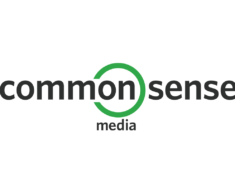Over the past few weeks, both Facebook and Youtube have been scrambling to hire moderating staff to manage content on their respective platforms. Facebook has faced criticism for alleged intrusion by Russian entities during the last U.S. presidential election, while Youtube is being scrutinized for inappropriate content targeted at child users. While laws stipulating liability for web content have remained relatively lax, new European laws may force web platforms to place more emphasis on active content moderation.
This week, the European Commission called on Twitter, Youtube, Facebook, Google, and other platforms to take a more active role in moderating their content or face new legislation that would limit accessibility to the sites. The EU made these comments in response to the growing presence of extremist content on these platforms. Groups like ISIS and Al-Qaeda have made extensive use of these platforms to recruit new adherents, spread propaganda, and host videos of their violent attacks in order to spread fear.
The warning to these companies was issued near the end of the EU’s third meeting of their Internet Forum. The meeting was attending by law enforcement members from several countries, some of the technology companies in question, and various political officials from several EU member states. The organization plans to give the tech industry some time to step up its internal moderation policies, but if they fail to comply, will begin issuing sanctions and legislation to address the problem. The EU has stated that it generally favors a blanket, self-regulated industry approach over having to rely on individual member states to enact their own regulations.
For their part, the tech industry has responded to the call for greater moderation against extremist content with rapid cooperative effort. Several companies have banded together to form the Global Internet Forum, a group dedicated to fighting extremist content. Facebook, Twitter, Microsoft, and Youtube are counted among the group’s ranks. The Forum began construction of a database to catalog extremist videos and images to enable automated detection and removal. According to the group, the database contains over 40,000 such images and videos and that the database enables platforms to remove them, on average, within an hour or two of being uploaded.
EU commissioner Dimitris Avramopoulos stated that even with this new advisory group, there remains “a lot of room for improvement.” He specifically cited a need for the tech industry to report directly to the EU more frequently and generally adopt a position of greater transparency in order for self-regulation to work.
Dil Bole Oberoi





